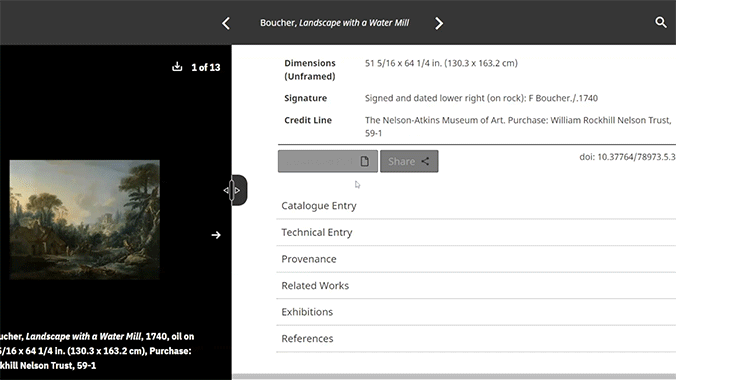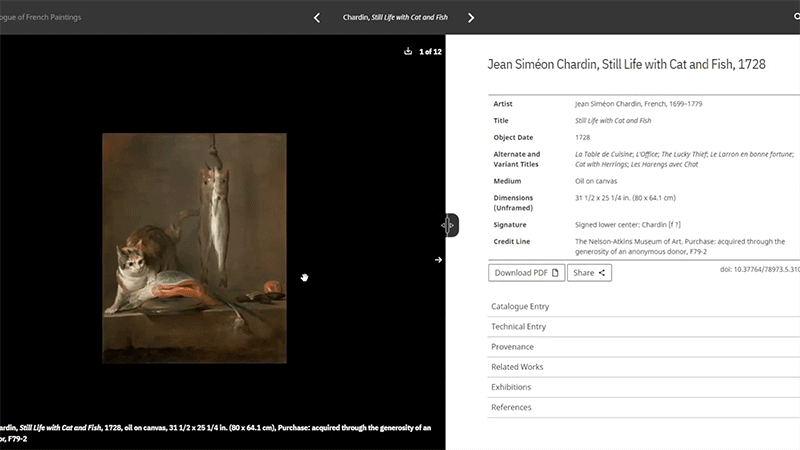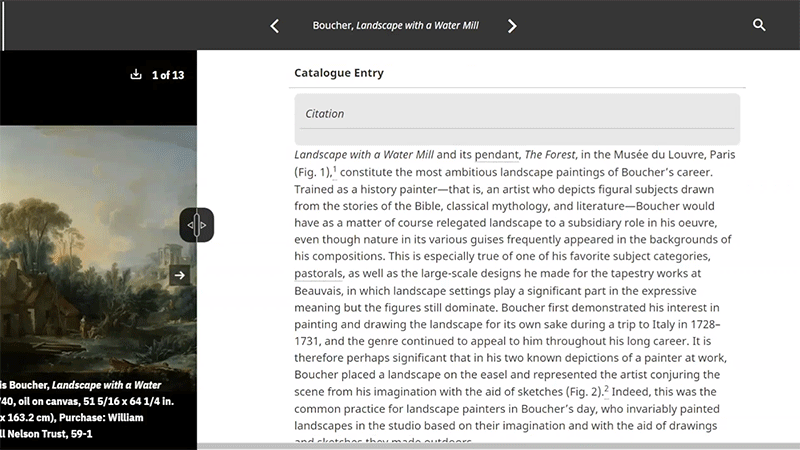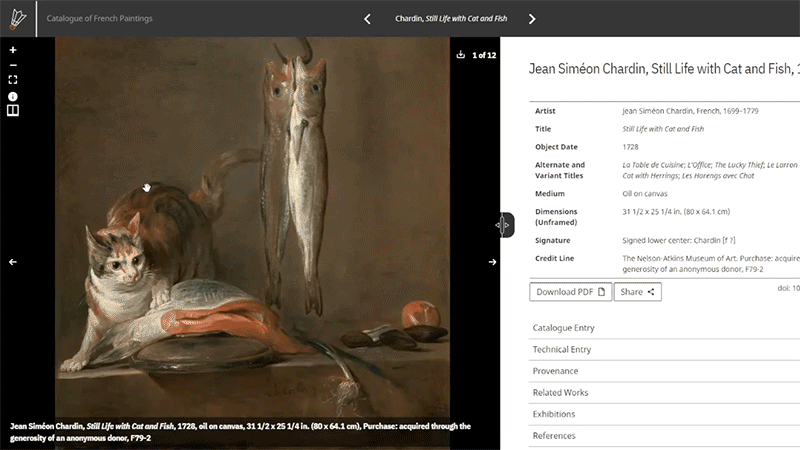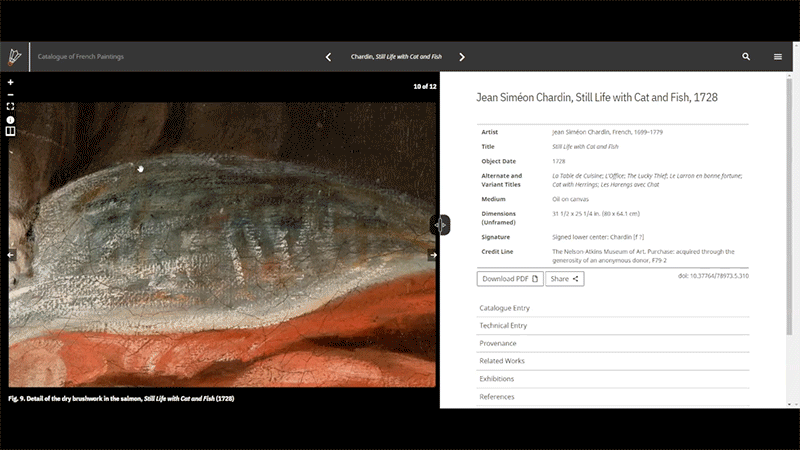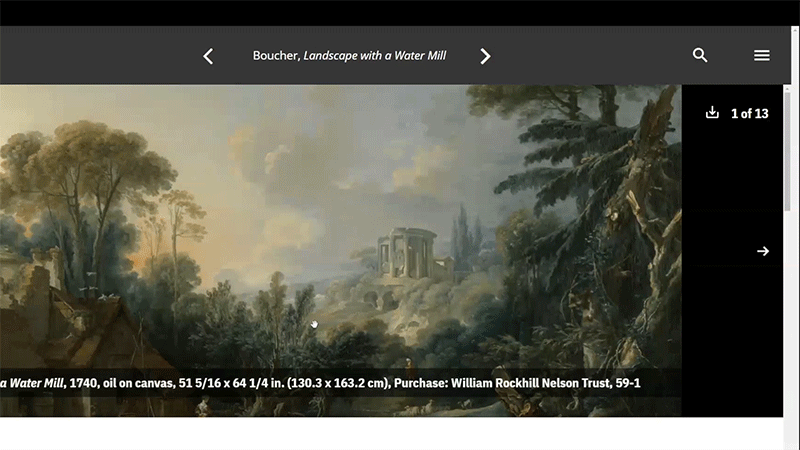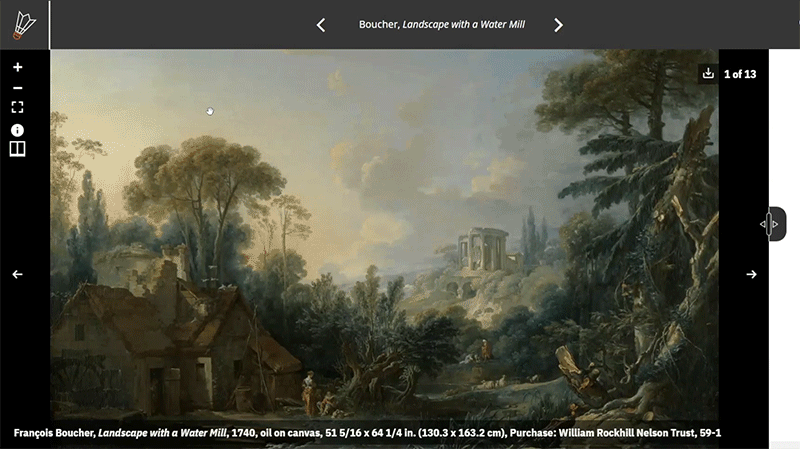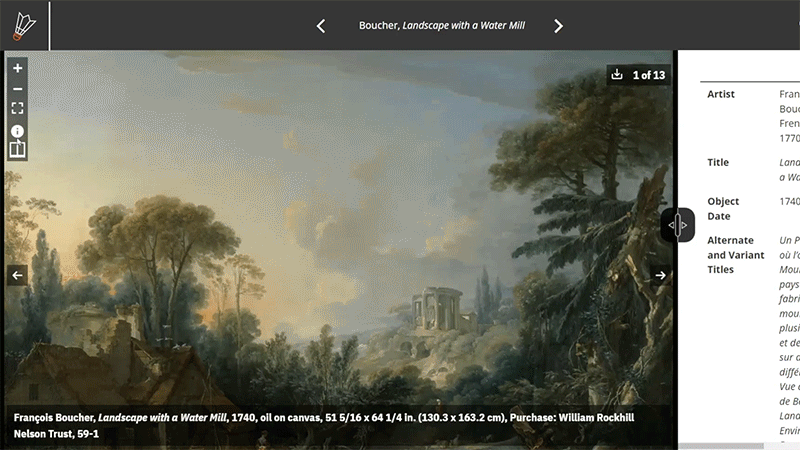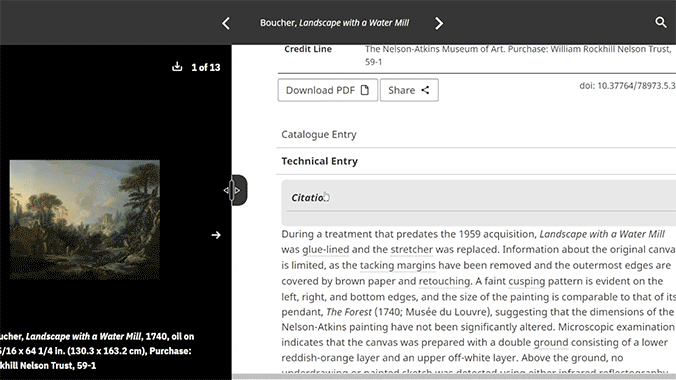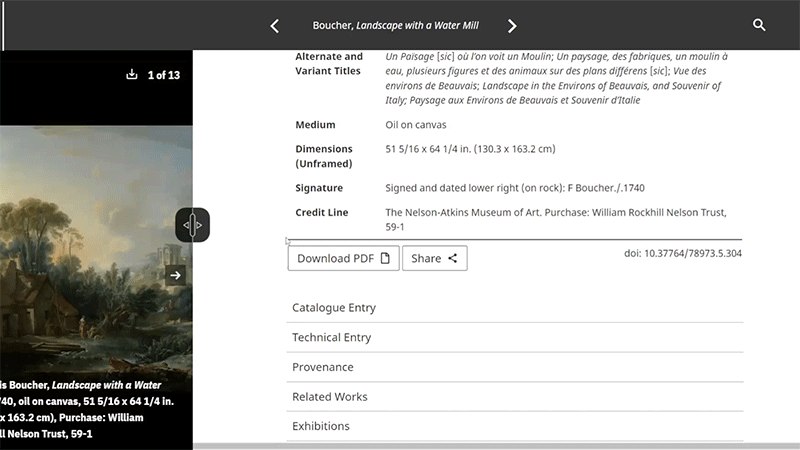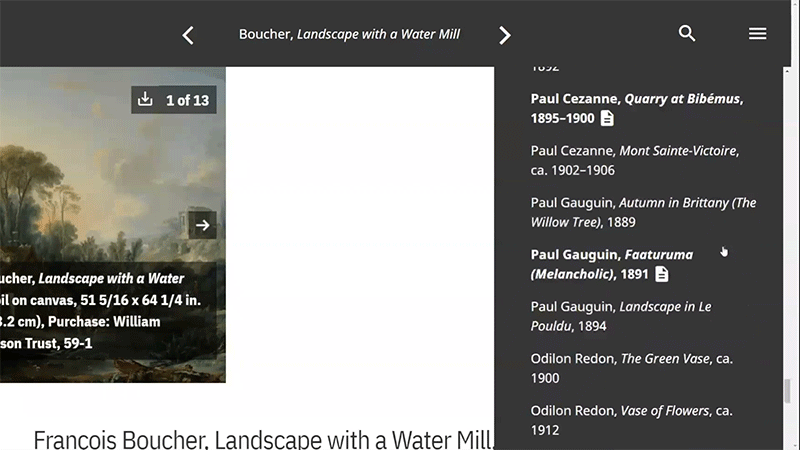Frequently Asked Questions
Navigation
How do I locate fully published entries with content?
A full list is located on the Publication Installments page organized by release date. Fully published entries can also be located through the Table of Contents and the menu. The entries marked by the page icon (description) have been fully published.How can I navigate the publication?
At the top center of your screen, you will see the dark gray navigation bar. Using the left and right arrows, you can click through the different pages of the catalogue.Website Functionality
Where do I find the content on published entries?
When you come to a published entry, clicking on the headings will open each portion of the page.How does the image/text resizer work?
On entry pages where an image is visible on the left and the tombstone information is on the right, this icon can be found at the center right edge of the image viewer. The button can be clicked and dragged to adjust the size of the image viewer and text.What does underlined text in an entry mean?
Underlined text in an entry indicates a glossary term or endnote, which can be viewed by hovering your cursor over the term or endnote superscript.Image Viewer Features
Why is the image viewer empty?
Due to the large file sizes of our images, the image viewer often appears empty when you navigate to a page for the first time. Please try re-loading the browser to prompt our site to re-load the image viewer and the files.How do I zoom in on images within the image viewer?
By hovering over the image viewer with your mouse and scrolling with your mouse’s scroll wheel, you can increase and decrease the magnification of the image. While zoomed in, the image can then be clicked and dragged to view different regions of the image. On a device with a touch screen (such as a mobile phone or tablet), you can use your fingers to pinch in or out to adjust the zoom level. Additionally, we have provided + and - buttons to increase and decrease the level of zoom. On a device with a touch screen (such as a mobile phone or tablet), you can also use your fingers to pinch in or out to adjust the zoom level.What do the icons on the image viewer mean?
At the top left is a dual view button (two vertical rectangles), which allows you to view two images side by side. Clicking it a second time will take you back to a single image view.How do I remove the image caption from the image viewer?
To remove the image caption from the image viewer, click the caption icon info. Clicking it again will return the caption to the image viewer.How do I view two images side by side?
To view two images side by side on a single page, click the dual-viewer button (two vertical rectangles). Within the side-by-side viewer, you can view any images within the curatorial and technical entries on that page by clicking the left or right arrows in each viewer window. Please note: this dual viewer only loads images from the current entry; we do not offer the ability to view images side by side from different pages.Administrative
How can I contact the French Paintings Catalogue team?
Research is always ongoing. We are open to learning more about our collection. Do you have a question or comment? Have you found inaccurate or problematic information? Please tell us more!Direct questions and comments to FrenchPaintings[at]nelson-atkins.org
What is a DOI?
A DOI (digital object identifier) is a persistent identifier used to uniquely identify online articles or books. Each entry and essay in this catalogue has been assigned a DOI. It is listed underneath an entry’s object information and inside the citations drop-down menu. More information about DOIs can be found at https://www.doi.org/hb.html.How do I cite the catalogue?
Chicago Manual of Style and MLA citations for each portion of each entry are available through the “Citation” drop-down menus. To cite the entire catalogue, please reference the citations at the bottom of the pop-over menu.For pages which have not been published, the DOI is available below the object information to use in citations.





